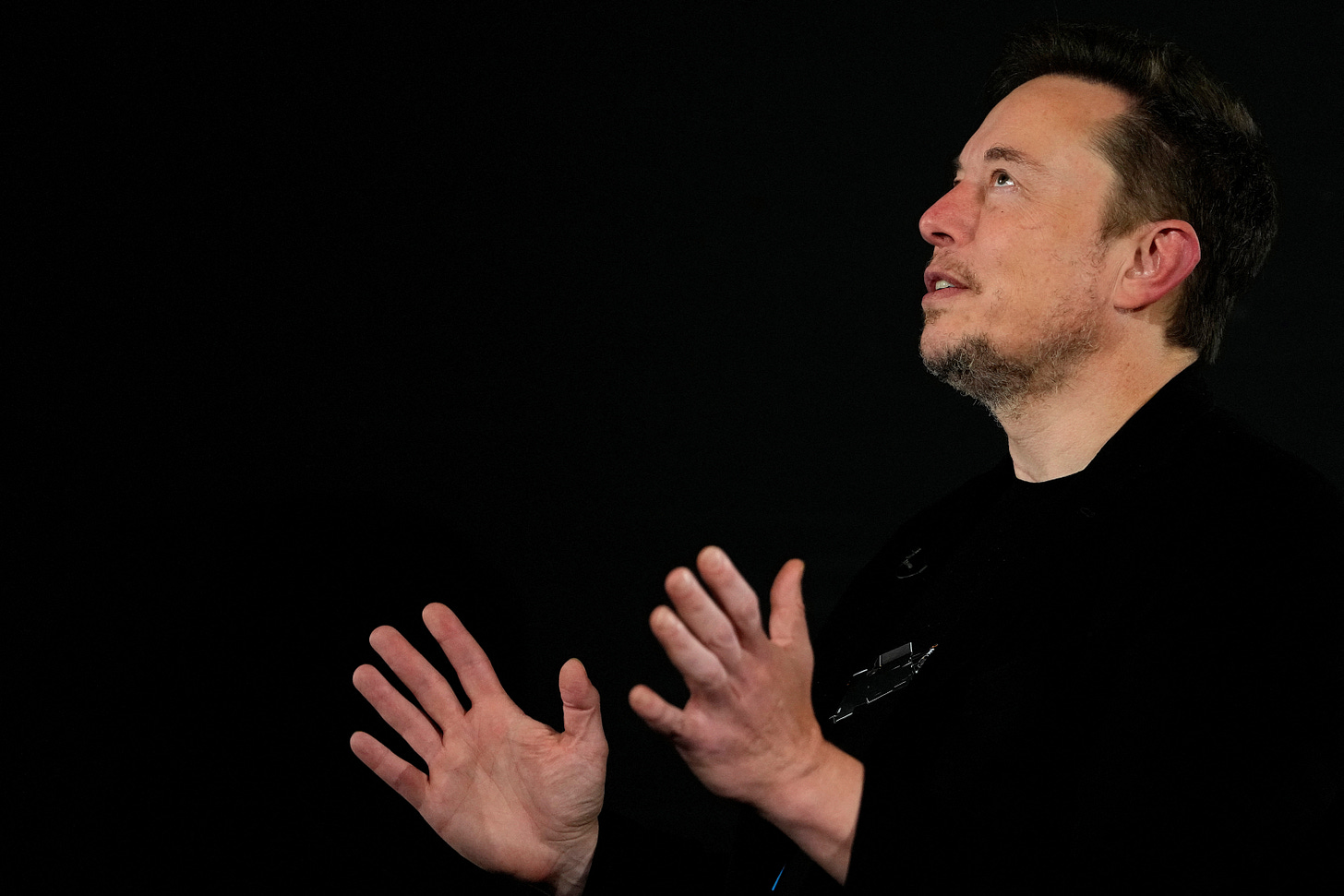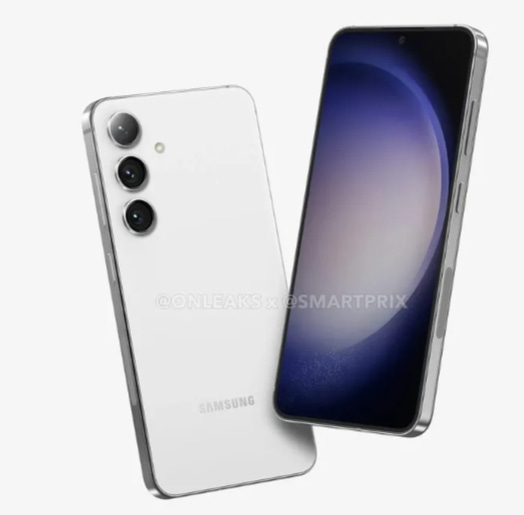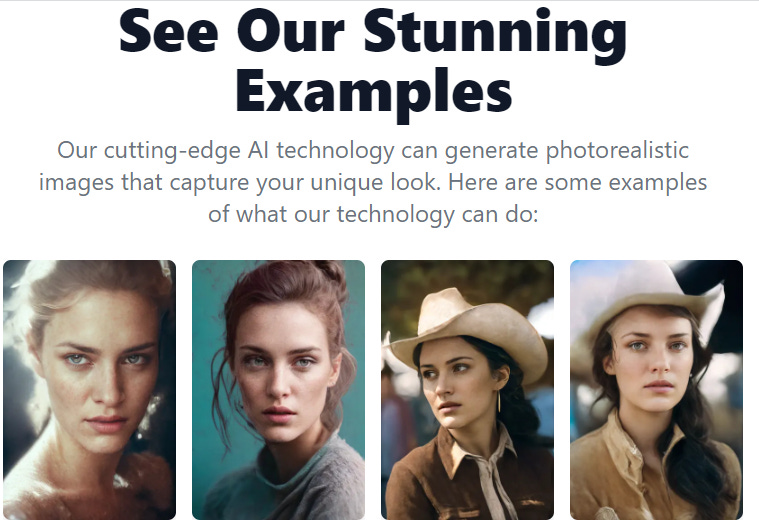Elon Musk’s Stark AI Warnings: Job-Stealing Boon or Bane for Society and More...
Elon Musk's Stark AI Predictions: Will Automation Usher in Utopia or Disaster for Society? PLUS: Man United and Samsung Explore AI's Creeping Impact
Tech visionary Elon Musk is no stranger to bold, even ominous predictions about artificial intelligence (AI) and its impacts on humanity. As founder of Tesla and SpaceX, Musk has an inside track on AI’s rapid development and future trajectory. During a recent UK summit on AI safety, he doubled down on his view that AI will fundamentally transform work and the economy within the next decade.
Musk told UK Prime Minister Rishi Sunak he believes AI will eventually perform “everything”, eliminating the need for human employment and labor entirely. He foresees a world where people can still work if they choose, but it will be unnecessary as AI handles producing all goods and services. This abundance created by AI will usher in what Musk dubs “universal basic income” - or more accurately, a “universal high income” with no poverty or scarcity.
If even parts of Musk’s predictions come true, it would be a watershed shift for society. For the first time, technology could potentially liberate humanity from the burden of work and provide universal prosperity. But many valid concerns remain about whether AI will truly create a techno-utopia or simply concentrate power and wealth. Critics argue Musk overlooks the massive displacements AI will cause for huge segments of the population in the coming years and decades.
AI’s Optimists Envision Utopia
Musk is not the lone voice heralding AI as society’s salvation. Other prominent figures in tech like Sam Altman of OpenAI and Mark Zuckerberg have articulated similar optimism about AI’s potential. They foresee that as AI matches and exceeds human capabilities across more occupations, abundant resources and free time will open up for all people. With advanced robotics and algorithms handling manual and cognitive work, human needs and wants could be fully satisfied without anyone having to work.
This techno-optimist perspective envisions AI as the great economic and social equalizer, spreading prosperity independent of status, gender, or nationality. With abundant leisure time, people could focus less on work and more on creative pursuits, self-actualization, and spiritual growth. AI prophets like Ray Kurzweil believe AI will even help humans transcend biological limitations and achieve immortality via a human-AI “singularity”.
Critics contend this perspective underestimates the disruptions and inequalities AI could also introduce. While new technologies have always eventually created new jobs after making old ones obsolete, AI threatens workforce disruptions on an unprecedented scale and pace. If machines become capable of both physical and mental labor, entire industries and professions could vanish within a generation, with millions left structurally unemployable.
Inequality and Concentration of Wealth Loom
A common critique of the optimistic view is that it wrongly assumes AI’s gains will be evenly distributed, when real-world experience suggests the opposite. Recent decades of innovation have disproportionately benefited technology firms and higher-skilled workers, while leaving many traditional jobs behind. Unchecked AI development could easily concentrate power and wealth, rather than sharing prosperity.
Even if AI generates tremendous economic gains in aggregate, much of that wealth may flow predominantly to the people and companies pioneering AI applications. While incomes may rise for AI innovators and shareholders, job-replacing AI could hollow out middle class work and leave many poorer. Musk’s “universal basic income” could easily default to a bare subsistence stipend while AI generates tremendous riches for a small tech elite.
Preparing for the AI Job Disruption
Regardless of whether one views AI as utopian or dystopian, responsible leaders should acknowledge and prepare for the workforce disruptions AI will inevitably cause in the coming years and decades. While Musk predicts mass job displacement is still a decade away, respected economists estimate AI could impact tens of millions of workers within the next 5-10 years.
Policymakers need forward-looking solutions to help impacted workers transition and ensure broad access to AI’s gains: educational programs to re-skill workers, robust social safety nets, incentives for job creation, and new forms of worker empowerment. The tech industry also needs oversight and incentive structures to guarantee AI benefits are shared widely, not monopolized by early adopters.
Public deliberation and inclusive policymaking are needed immediately to shape an equitable AI future. If existing social and economic disparities are left unaddressed alongside rapid AI rollout, technology risks making inclusion and empowerment even more elusive for marginalized communities.
The path to an AI future with prosperity for all is not guaranteed – it will require making equity and empowerment core design principles of AI systems from the outset. Technology leaders like Musk have an outsized role and responsibility in that process.
Historic Manchester United Makeover Courtesy of AI
Beyond concerns about AI’s broad societal impacts, narrow AI applications are already demonstrating new capabilities to transform creative fields like design. Take the recent viral sensation of AI-generated concept jerseys for iconic English football (soccer) club Manchester United.
Longtime football shirt collector Dan asked the AI system ChatGPT to design brand new home jersey concepts for Manchester United and 19 other Premier League clubs. The results went viral, with many fans and commentators agreeing the AI-crafted United concept jersey looks better than their actual 2023/24 kit.
The AI-generated design features a stylized “Man U” emblem front and center, with a sharp diagonal sash stripe that nods to United’s origins as a 19th century railway club formed by rail workers. A clean button-up collar and adidas side stripes complete the retro yet modern vibe.
Compared to United’s real-world Nike-produced jersey this season – which has drawn fan scorn for its generic, random black squiggle pattern – the AI concept evidently combines United’s heritage and identity in a more compelling package. The AI seems to intuit symbolic connections a human designer may miss.
Of course, generating hypothetical jersey designs is very different from successfully commercializing and manufacturing them for sale. But it’s just one small sign of how AI is beginning to encroach on creative territory we previously thought of as intrinsically human.
Samsung Bets On AI as Key Mobile Differentiator
Tech giant Samsung is also jumping into the AI revolution with both feet, aiming to be a leader in localized AI applications on mobile devices. Samsung recently unveiled Gauss, its new family of AI models developed specifically for on-device integration into phones, appliances and more. The company plans to debut key Gauss features in the upcoming Galaxy S24 smartphone next year.
While cloud-based systems like ChatGPT require constant internet connectivity and have user privacy issues, Samsung is focused on making Gauss work efficiently on local device hardware for tasks like composing messages or generating images. The company is also customizing Gauss for optimal performance on its own proprietary mobile chips.
Samsung framed Gauss as providing "new user experiences" by enabling features and functionality that would be cumbersome or impossible without AI assistance. The digital assistant Bixby will also gain new natural language capabilities thanks to Gauss.
Analysts see Samsung's embrace of on-device AI as a strategy for standing out in a crowded mobile market and driving upgrades by users interested in powerful new AI functionality unlocked by new hardware. It also allows Samsung to control and customize the user experience in a way third-party apps cannot.
However, challenges remain to balance AI capabilities with the limited memory and processing constraints inherent to mobile devices. Striking the right combination will be critical to Samsung's aim of making Gauss and AI a primary selling point for its next generation devices. If executed successfully, it could provide a blueprint for ubiquitous AI that enhances everyday gadgets without as many potential downsides as unconstrained cloud-based AI systems.
For tech firms like Samsung, AI holds immense opportunities alongside risks. But leaders who acknowledge disruption and make empowerment a guiding light may yet steer toward an AI age where everyone benefits.










